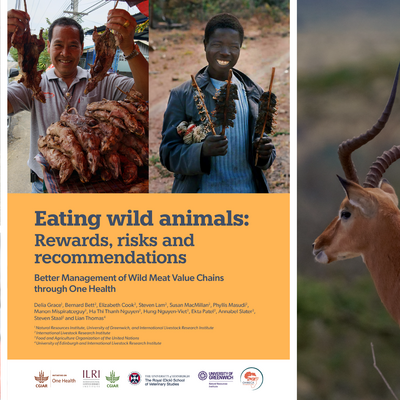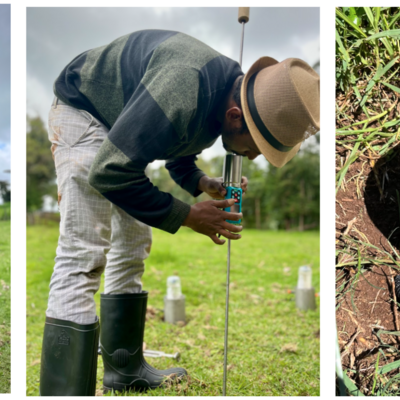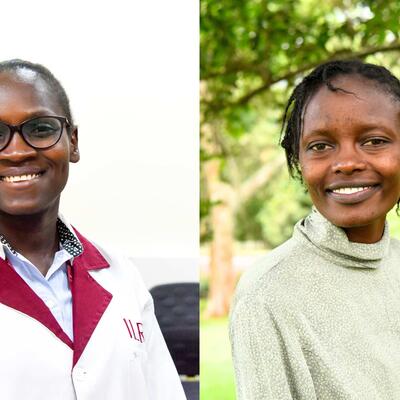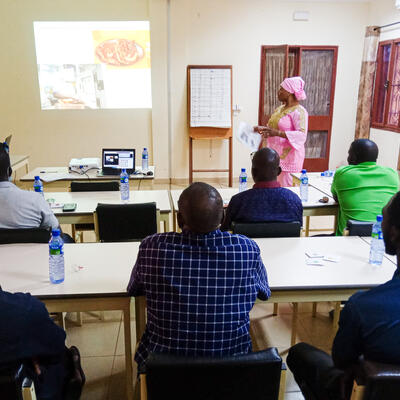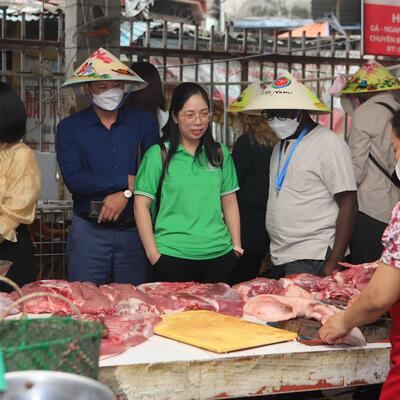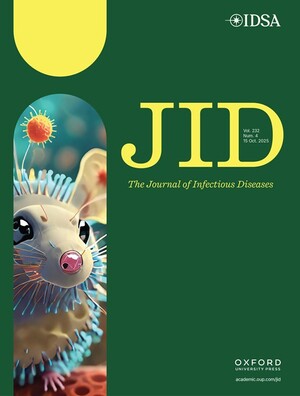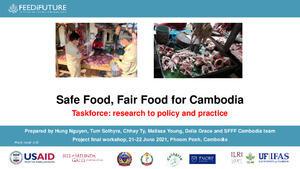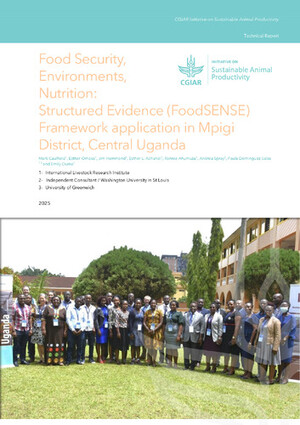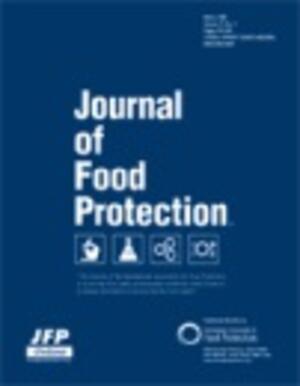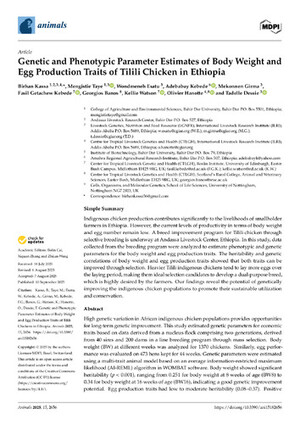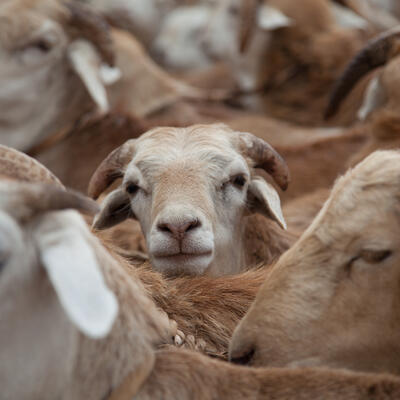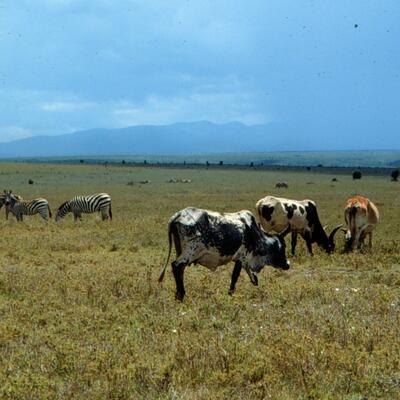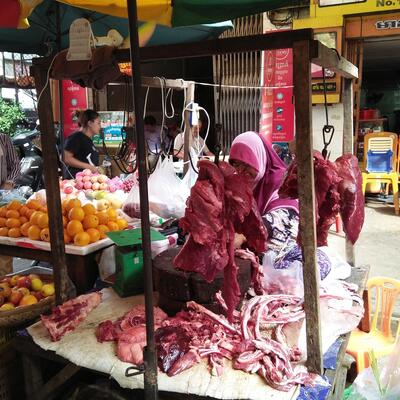
A new animal health platform to generate products and transform animal health services for low- and middle-income countries
Improving the productivity of farm animals can lead to sustainable increases in livestock production in low- and middle-income countries (LMICs) and contribute to addressing the Sustainable Development Goal 2, to end hunger, achieve food security and improve nutrition and promote sustainable agriculture. However, this depends heavily on the farmers’ access and use of safe and efficacious animal health products.
The International Livestock Research Institute (ILRI), the Global Alliance for Livestock and Veterinary Medicine (GALVmed), and Clinglobal, have partnered to establish a platform that is transforming animal health solutions and services in low- and middle-income countries (TAHSSL). Funded by the Bill & Melinda Gates Foundation, TAHSSL will be a one-stop shop to conduct research on animal health product technologies that will generate robust proof-of-concept data to de-risk potential private sector entry into product development, registration and use. The platform, which is to be based at ILRI Nairobi campus in Kenya, where GALVmed also has an office, will focus on research and development of veterinary medicinal products such as vaccines, diagnostics and pharmaceuticals that address animal diseases in LMICs. The platform will further provide services to the public and private sector to accelerate animal health product development and facilitate market development and entry.
The TAHSSL platform draws on the scientific expertise and facilities for veterinary medicinal research at ILRI. Vish Nene, ILRI’s co-leader for the Animal and Human Health program says that ‘the platform holds great promise for the development of a novel business model to transform animal health research and to develop innovative solutions and services with impact in LMICs.’
Some of the disease burdens that affect livestock in LMICs include:
- African swine fever (ASF), an epidemic that threatens the global USD 150 billion per year pig industry.
- Contagious bovine pleuropneumonia (CBPP) which is a transboundary disease with estimated economic losses of over USD 100 million per year in Africa.
- Contagious caprine pleuropneumonia (CCPP) affects mainly goats in Africa, Asia and the Middle East is estimated to cause an annual economic loss of over USD 500 million per year.
- East coast fever (ECF), an endemic disease in sub-Saharan Africa putting approximately 50 million cattle at risk per year with an annual cost of the disease estimated at USD close to 600 million.
- Ticks and tick-borne diseases are estimated to affect 80% of the global cattle population with an estimated economic impact of USD 14 billion.
The coming months will see concerted engagement with the private sector and other stakeholders to prioritise R&D and commercialisation that TAHSSL will focus on. Josephus Fourie, vice president, scientific operations of Clinglobal said the company ‘will play a critical role in establishing an operational model for the platform to ensure efficient delivery of high quality and scientifically robust veterinary research services and technologies.’ He further added that ‘this model will form the core of good client relations and partnerships within the platform’.
A key component of the TAHSSL platform is to ensure that public-private partnerships assist with the development of veterinary medicinal products. Christophe Barnier Quer, GALVmed’s regional director for research and development says, ‘the TAHSSL platform, through its use of expertise and facilities at ILRI, will fill existing gaps in veterinary products research and ensure this work meets the necessary quality standards for product development in LMICs.’
About ILRI
ILRI is a non-profit institution working for better lives through livestock. Working in extensive partnerships, ILRI helps people in developing countries keep their farm animals alive and productive, increase their livestock and farm productivity in sustainable ways, find profitable markets for their animal products, and reduce the risk of livestock-related human diseases. ILRI works through a network of 14 regional and country offices and projects across Asia and sub-Saharan Africa delivers science-based practices, provides scientific evidence and develops capacity in livestock development.
About GALVmed
GALVmed works with partners to make livestock vaccines, medicines and diagnostics accessible and available to millions of smallholder farmers in developing countries who depend on livestock for their livelihood. The international not-for-profit company aims to make a significant contribution towards transformational change in the smallholder livestock health landscape by developing a portfolio of high-impact products and initiating a range of private sector market initiatives operating at scale in the smallholder sector in Africa and South Asia. GALVmed is headquartered in Edinburgh, Scotland with regional offices in Nairobi, Kenya and New Delhi, India.
About Clinglobal / Clinvet
Clinglobal is an Animal Health Services company that serves as the contract holder and support services provider for the ever-expanding 'Clin' group of companies. Headquartered in Mauritius, Clinglobal coordinates the efforts and manages the business relationships of Clinvet (preclinical and clinical research facilities), Clindata (data management and stats services), Clinomics (molecular diagnostics R&D laboratory), and Cynvivo (specialized biomedical research services). Clinglobal also represents the group in strategic partnerships and alliances to advance innovation in Animal Health and support the One Health approach to Animal Health.
For more information on the TAHSSL platform, contact:
Musa Mulongo, PhD - TAHSSL Platform Coordinator
P.O. Box 30709 -0100, Nairobi, Kenya
Tel: +254 204223000
Email: musa.mulongo@tahssl.org






